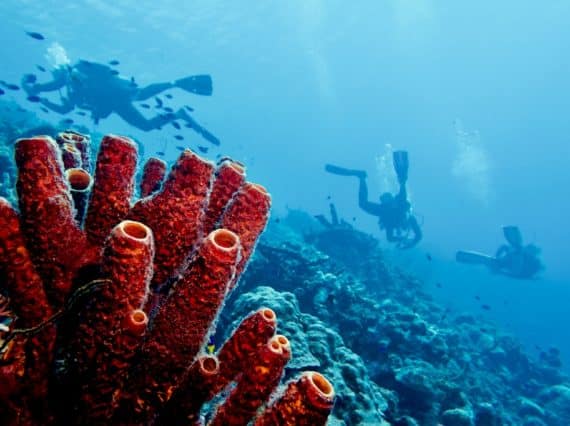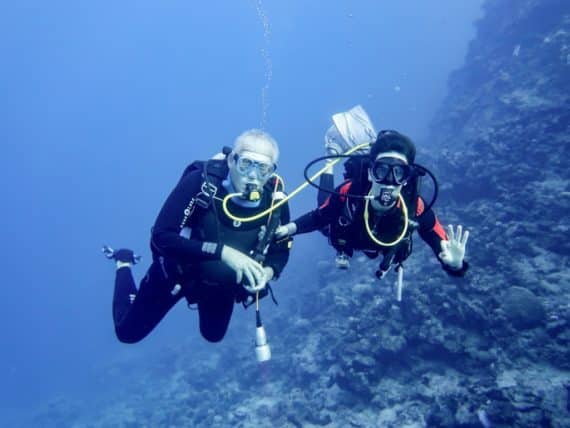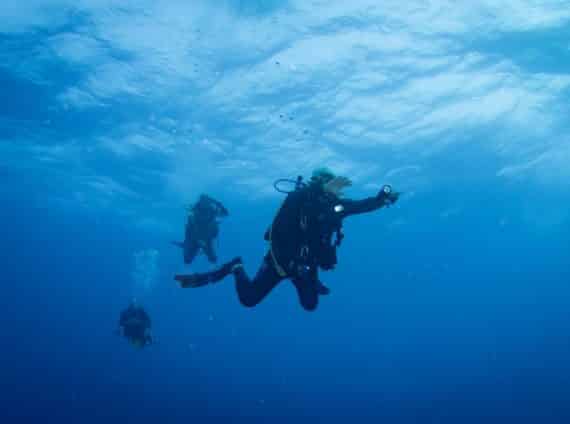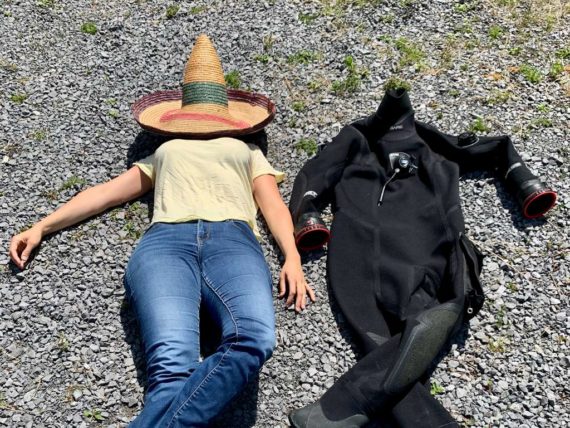COVID-19 And Diving: SBMHS Medical Recommendations

Covid-19 and diving
The world is subject to the effects of covid-19 and is waiting for a way out of the pandemic. Many people will suffer (more or less) of after-effects of the disease. But what will be the effects of covid-19 and diving?
What will we have to do when it’s time for de-containment and we can resume our favorite activity?
This is the subject that the Belgian Society of Hyperbaric and Underwater Medicine has been working on.
The recommendations were made on April 10th 2020 with the scientific/medical knowledge available at that time. They are likely to be modified in the light of the evolution of knowledge and discoveries on covid-19.
Reminder
While covid-19 can almost be asymptomatic it can also lead to serious damage to the lungs and heart. Two organs that must be in perfect working condition for our diving activity. We will have to be very careful before resuming the activity.
Resume diving after containment
- For people who have been affected by covid-19: wait a period of 1 to 3 months before diving (it’s long, but it’s your health and that of others) depending on the severity of symptoms. Ideally, they will need to be examined further, especially with regard to their lung capacity.
- Divers who have not been contaminated should also wait a certain amount of time before diving again, as they will not have developed immunity and may therefore be contaminated by others.
- Diving equipment, if exchanged, loaned and/or rented, should be very carefully disinfected.
Covid-19 and diving: Be careful when you start again!
The risk of pulmonary overpressure, heart failure, and/or DCS is increased for individuals who have been hospitalized for pulmonary or cardiac reasons related to covid-19. Individuals who have been ill should ideally have a complete pulmonary function test after 3 months following the end of the infection.
You can find the full set of SBMHS recommendations using this link
Editor’s note: some of us will have been unknowingly contaminated by covid-19. At this point we don’t know if this will have an impact on our lung capacity. The data on this virus is changing from day to day. The advice to be patient before diving again is certainly the best advice. It is also important to share your doubts and fears with your doctor and to discuss with him/her whether or not further tests are necessary.
In the meantime, until we can resume our diving activity with pleasure and in complete safety, even if it’s long, let’s be as patient as possible and… stay at home.
The happiness of being underwater will only get better.
👉 More articles on the prevention of diving accidents
And above all… don’t forget to be happy 🤗
Hélène
To stay in touch it’s HERE
Prevention :
Stay Safe While Diving
Diving into the underwater world is an exhilarating experience, offering encounters with fascinating marine life and breathtaking seascapes.
However, the beauty and allure of the ocean come with inherent risks.
Staying safe while diving isn’t just about personal enjoyment; it’s a responsibility towards oneself and diving partners. Key to safe diving practices is proper training and certification through recognized diving schools.
Before each dive, meticulously check your equipment for wear and tear to prevent malfunction underwater. Always dive within your limits, respecting your training and experience levels.
The buddy system is a cornerstone of diving safety, ensuring mutual support and monitoring underwater. Adequate pre-dive planning, including understanding dive site conditions and having a dive plan, minimizes risks.
Remember, conserving your air supply and regularly monitoring your gauge can prevent out-of-air emergencies.
Embrace the motto: Plan your dive, and dive your plan. Diving safely enhances the underwater experience, ensuring many more dives to come.









